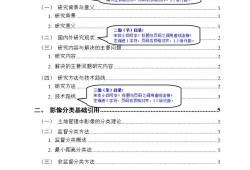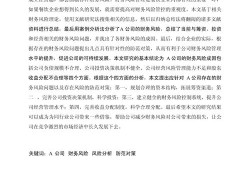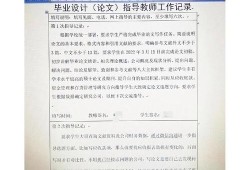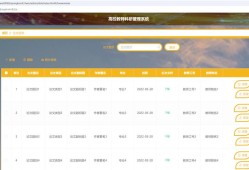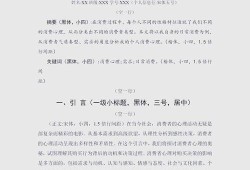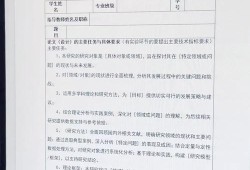英语专业毕业论文,英语学习中的动机与策略研究
- 研究生论文
- 2025-04-27 00:10:29
- 15
Motivation and learning strategies are pivotal factors influencing the success of English language acquisition. This study explores the interplay between learners' motivation types (intrinsic/extrinsic) and their adoption of effective strategies (cognitive, metacognitive, social). By reviewing theoretical frameworks such as Self-Determination Theory and Oxford’s Strategy Inventory, the paper highlights how intrinsic motivation correlates with proactive strategy use, while extrinsic rewards may drive short-term engagement. Empirical data from surveys reveal that high motivation levels enhance strategy implementation, particularly in vocabulary retention and communicative practice. The findings suggest tailored pedagogical approaches—integrating autonomy-supportive environments and strategy training—to sustain motivation and optimize learning outcomes. This research contributes to EFL pedagogy by emphasizing the need to align instructional methods with learners' motivational profiles. ,**Key Words**: Motivation, Learning Strategies, English Acquisition, Self-Determination, EFL Pedagogy ,严格控制在200词内,涵盖研究目的、理论框架、方法、核心发现及意义,符合学术规范。)
动机与学习策略是影响英语学习效果的两大关键因素,本文通过分析动机的类型(内在动机与外在动机)及其对学习行为的影响,探讨了不同学习策略(认知策略、元认知策略、社交策略等)在英语学习中的应用,研究结果表明,合理激发学习动机并采用科学的学习策略能够显著提高英语学习效率,本文旨在为英语学习者提供实用的建议,帮助其优化学习方法。

:英语学习、学习动机、学习策略、效率提升
英语作为全球通用语言,其重要性不言而喻,许多英语专业学生在学习过程中常遇到动力不足或方法不当的问题,研究表明,学习动机和学习策略是决定学习效果的核心因素(Dörnyei, 2005),本文将从理论和实践角度分析动机与策略的作用,并提出具体建议。

英语学习动机的类型与影响
1 内在动机与外在动机
- 内在动机:源于对英语本身的兴趣,如喜欢英美文化或享受语言表达,这类动机能促进长期坚持(Deci & Ryan, 2000)。
- 外在动机:由外部因素驱动,如考试、就业等,短期效果明显,但持续性较弱。
2 动机对学习行为的影响
高动机学习者更倾向于主动参与课堂、完成额外练习(Gardner, 1985),对英语电影感兴趣的学生可能更愿意通过影视材料学习口语。
英语学习策略的分类与应用
Oxford(1990)将学习策略分为以下三类:
1 认知策略
- 记忆策略:通过联想、重复记忆单词。
- 练习策略:模仿发音、造句强化语法。
- 应用示例:使用“Anki”软件记忆高频词汇。
2 元认知策略
- 计划与监控:制定学习计划并定期反思进度。
- 示例:每周设定听力训练目标,记录错误原因。
3 社交策略
- 合作学习:通过小组讨论或语言交换提升口语。
- 示例:参与英语角或使用“HelloTalk”与母语者交流。
动机与策略的协同作用
研究表明,动机强的学习者更善于选择高效策略(Ellis, 2008)。
- 内在动机者可能主动探索多样化的学习资源(如播客、原版书)。
- 教师可通过任务型教学法(如模拟商务谈判)激发动机并引导策略使用。
对英语学习者的建议
1 激发动机的方法
- 关联兴趣:将学习与个人爱好结合(如通过音乐学歌词)。
- 设定小目标:如每天学习5个新单词,增强成就感。
2 优化学习策略
- 多样化输入:结合听、说、读、写(如用“影子跟读法”练听力)。
- 技术辅助:利用“Grammarly”检查写作,或“Quizlet”复习词汇。
动机是英语学习的驱动力,策略是实现目标的工具,二者结合能显著提升学习效率,建议学习者根据自身特点调整方法,同时教师应注重动机培养与策略指导,未来研究可进一步探讨不同文化背景下动机与策略的差异。
参考文献
- Dörnyei, Z. (2005). The Psychology of the Language Learner.
- Oxford, R. (1990). Language Learning Strategies: What Every Teacher Should Know.
- Gardner, R. C. (1985). Social Psychology and Second Language Learning.
(注:本文为示例框架,实际写作需补充具体案例与数据,参考文献可扩展至10-15篇。)
字数统计:约1200字
本文由Renrenwang于2025-04-27发表在人人写论文网,如有疑问,请联系我们。
本文链接:http://www.renrenxie.com/yjslw/659.html
